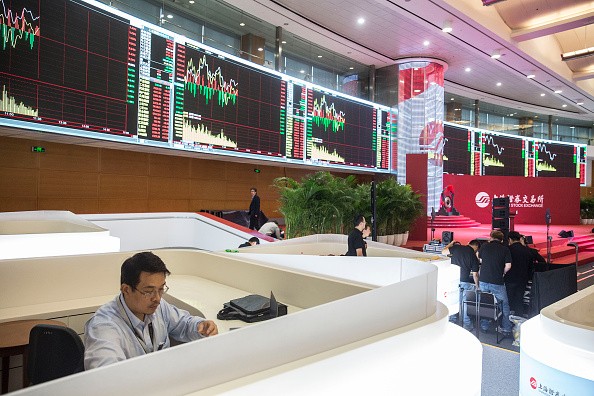As the Chinese government moves to curb speculative stock investments done by several Chinese big insurance companies, Chinese shares fell to its biggest daily drop in six months.
The Wall Street Journal said that the Shanghai Composite Index closed down 2.5 percent at 3152.97, the lowest point in a month. The abrupt decline came after several months of calm activity on the Chinese stock markets, after recovering from daily drops early in the year.
Meanwhile, trade shares in Shenzhen, China's second biggest stock market, fell about 4. 9 percent on Monday, Dec. 12. Earlier this month, the government allowed foreign investors, mostly from sectors of technology and pharmaceutical, to trade shares in Shenzhen.
According to the report, the stocks drop after China's insurance regulator announced on Friday, Dec. 9, that it had suspended Evergrande Life, the insurance unit of the country's largest property developer, China Evergrande Group, from investing in stocks. Authorities said Evergrande Life has been engaged in short-term trading which violated investment rules.
Foresea Life, a subsidiary of financial conglomerate Baoneng Group, also vowed toreduce its holdings in Shenzhen-listed Gree Electric Appliances Inc., after aggressively building its stake in recent months.
Big insurers have made several share purchases that drove the Shanghai market to a 10-month high. Many insurance funds have shares in about a quarter of all listed Chinese companies and the total holdings reached about 1.04 trillion yuan ($150.56 billion), an increase of more than 80 percent from two years ago.
China's top securities regulator however, said that big insurers' share buying was mostly speculative and had disrupted market stability.
"It's clear that regulators are strongly against such stake buying by insurers that may disturb the management of listed firms," Deng Wenyuan, an analyst at Soochow Securities, said. He also noted that the latest crackdown on the purchases indicates the "lack of fresh money" entering the market.
Shares of China Vanke Co., the country's second-largest real-estate developer, dropped 6.3 percent, while China State Construction Engineering Corp., the nation's top home builder, fell 5 percent.
Anbang Insurance Group Co., now the second-largest shareholder of the state-run firm, has 10 percent stake in China State Construction Engineering Corp. over the past months. Gree also fell by 6.1 percent after Foresea Life announced that it is phasing out its 4 percent investment.
In recent months, IPOs have been rising and investors expect that shareholders will sell their stocks which have been locked up in the listed companies.
China requires shareholders of a listed company to hold their stocks for one year until the firm floats.
Sinolink Securities estimates that more than 370 billion yuan in locked-up shares will become tradable in December, with 440 billion yuan more of these shares coming up in January.



























